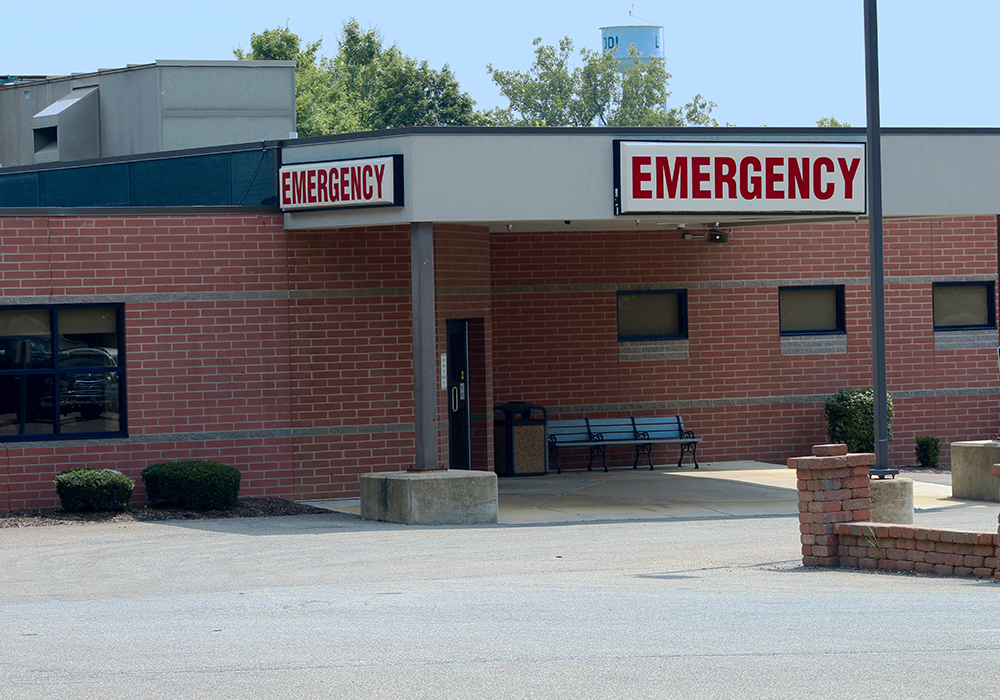The Alberta government is launching a $6-million program to tackle a shortage of family physicians in rural Alberta that was made worse by the COVID-19 pandemic.
“Simply put, having access to a family doctor saves lives,” said Katrina Taylor, student co-chair of the Family Medicine and Rural Medicine Interest Group at the University of Calgary’s Cumming School of Medicine. “People in rural Alberta deserve access to high quality, sustained, dependable and comprehensive health care in their hometowns.”
She spoke as part of a news conference announcing the provincial Rural Education Supplement and Integrated Doctor Experience (RESIDE) program. It will provide $2 million in financial incentives per year for the next three years in attempts to attract 60 physicians.
Read Also

Saskatchewan puts crown land auction on hold
Auctions of Saskatchewan crown lease land are once again on hold.
The program is open to family medicine resident physicians who will complete their residency training this year and who are interested in practicing in rural and remote parts of Alberta.
Fifteen communities have been selected for the first year of the program: Athabasca, Barrhead, Cold Lake, Fort Macleod, Fort Vermilion, Fox Creek, Grande Cache, High Level, Lac La Biche, Lloydminster, Milk River, Ponoka, Rimbey, Rocky Mountain House, and Wabasca.
They were selected as areas that have the most acute need for physicians, said Alberta Health Minister Jason Copping. However, further communities will be identified during the remaining two years, he added.
Access to primary care is linked to lower mortality from cancer, stroke and heart disease, along with improved life expectancy, said Taylor.
“Without such access to real doctors, more patients end up in emergency rooms, which in turn backs into critical services, leading to poor health-care outcomes for patients and more expensive health-care provision.”
The program aims to attract 20 new doctors per year to rural communities starting this fall, with the physicians working for three years in their designated locations.
The Rural Health Professions Action Plan (RhPAP) will administer the initiative, said board chair Dr. Gavin Parker.
“(It) marks the arrival of a long-awaited opportunity for physicians who are just beginning their practice in rural Alberta, and a chance to explore what it’s like to live and work in these communities.”
The idea is to better anchor such physicians to rural communities, so they don’t leave for urban areas, he said.
“I, myself, grew up in a bigger city. I grew up in Lethbridge and didn’t even think much about becoming a rural doctor until I got exposed to some of the opportunities through some of our RhPAP programs.”
Successful applicants to RESIDE will be eligible for a remote community incentive of $20,000 to $40,000, said Copping.
“The amount of community incentive will depend on the remoteness of the community where they are working.”
The doctors will also be eligible for $60,000 in reimbursements for their undergraduate tuition fees.
“As you know, getting enough physicians to rural areas of the province is an ongoing challenge, just as it is in other parts of the country, and COVID-19 certainly hasn’t helped,” Copping said.
“But we are taking action to address this challenge on numerous fronts because we are committed to ensuring Albertans have equitable access to physicians no matter where they live.”
Premier Jason Kenney said in 2020 that “perhaps misinformed attacks” by the Alberta Medical Association on his government’s initiative to rein in health care costs had helped fuel grievances by rural doctors. He maintained they “are the best compensated, with the strongest incentives in the country, and we hope that they’ll acknowledge that fact and continue to serve our rural communities.”
After negotiations fell apart, then-Alberta Health Minister Tyler Shandro cancelled the province’s contract with doctors in 2020, with outraged the medical association. He imposed changes to billing and compensation, leading some rural physicians to leave the province or cut back on services.
Asked why doctors should trust the provincial government, Copping said more than $90 million has been committed this year toward recruitment and retention of rural physicians. It includes $57 million for the Rural and Remote Northern Program, said a provincial statement.
As a full-service rural doctor, Parker said the last two years have been tough due to the pandemic. He welcomed provincial changes to billing for virtual care and phone visits.
“I, myself, have converted more than half of my visits with my primary care patients to over-the-phone service, which in particular with rural patients is very appreciated … so they’re not having to drive down roads that may not have been plowed and maintained and things like that in big snowstorms …”
The provincial government and the AMA issued a joint statement Jan. 20 that they are “exploring a return to formal negotiations toward a provincial agreement for Alberta physicians.”
Copping said he appreciated “the need that we reach an agreement, and we provide some certainty for doctors in regards to their source of income so they can actually set up their businesses. And we are working very hard to make that happen for them.”
















